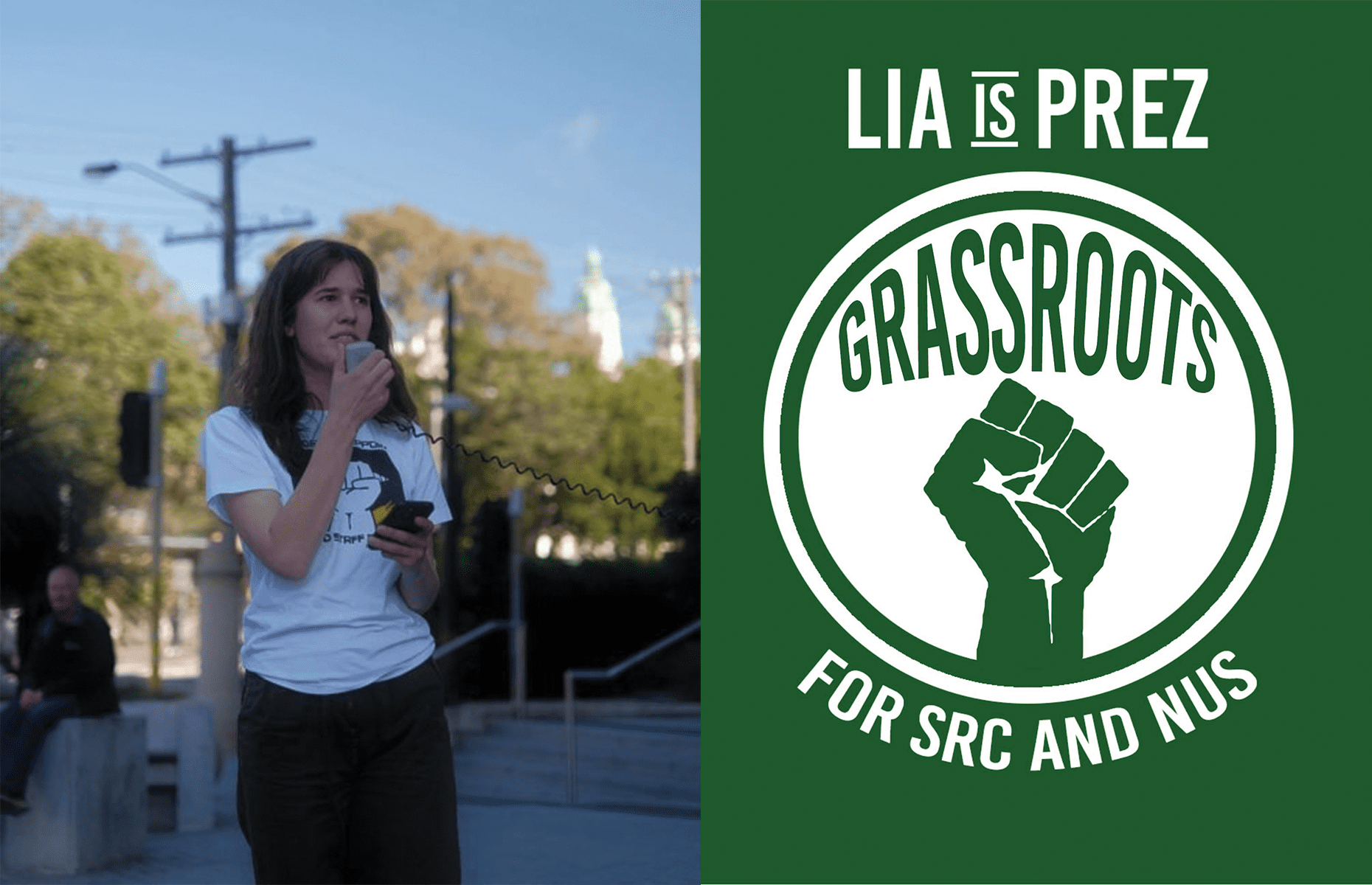Degree and year: Arts/Advanced Studies III
Faction: Grassroots (and Switch)
Quiz score: 66%
You can read the full transcript of Lia’s interview here.
Third-year Arts/Advanced Studies student and current SRC Education Officer, Lia Perkins, secured an easy victory in this year’s race for SRC President when the position went uncontested for the second time in three years. Like four of the last five Presidents, she hails from the non-party-affiliated left-wing coalition between Switch and Grassroots.
Perkins was a composed and articulate presence in her Honi interview, generally making clear political arguments about the direction of the SRC and highlighting the experience she has gained from dedicated activism within the body.
As a consequence of that experience, Perkins has a distinct focus on the importance of activism. She counted properly funding the collectives and introducing a broader range of students to activism within her most important policies. She described her term as Education Officer, which has been coloured by the context of the NTEU’s enterprise bargaining campaign, as helping her to “see the ability of students to make change and organise on a campus wide basis”.
When most students on campus would struggle to remember a time Grassroots did not hold the SRC Presidency, an obvious question is, what is there left to be done? Can the faction continue its dominance on campus, or will its influence start to atrophy?
Perkins is firm that the faction’s leadership has been a success, pointing to a series of effective activist campaigns and the introduction of services such as Foodhub. However, she notes that COVID-19 marred Liam Donohoe’s and Swapnik Sanagavarapu’s respective Presidencies. Further, she argues that maintaining the SRC’s services and campaigns takes continued investment and support, something she feels is best performed by independent, left-wing students.
Perkins believes strongly in building mass movements. She criticised the proposed Universities Accord and other lobbying approaches for their toothlessness. Asked how education activism could continue to expand, Perkins suggested that its most important task was to engage politically with students from marginalised backgrounds, who could intuitively empathise with university workers.
All the same, Perkins is not a total idealist. She was happy to admit to pragmatism where she could see it securing an overarching victory for the Left. Perkins was willing to support lobbying campaigns in limited circumstances, such as when combined with student protests in defeating the 12-week semesters proposal last year.
She rejected the Student Left Alliance’s characterisation of election deal-making as undemocratic, saying that ultimately Grassroots is “working with other people who share a vision about what the SRC should be.” Instead, she said, the Left should be realistic that achieving a majority on council was the only way to secure ever-important OB positions.
She was similarly unwilling to buy into Socialist Alternative’s critiques of service provision, describing it as an “important role” of the SRC that allows the organisation to expand its reach.
Nevertheless, it is very clear that Perkins is, first and foremost, an activist. Her less-than-impressive quiz result reflects a particular weakness in her knowledge of University management: she struggled to identify members of the University Senate and the Deputy Vice-Chancellor (Education).
Engagement with University management is a part of the President’s role. SRC Presidents have routinely shut down fledgling proposals that would be bad for students, and negotiation with the University is required to secure the SSAF funding that sustains the SRC. With this context, Perkins may face something of a steep learning curve before she can comfortably navigate the consultative duties of President.
Where Perkins has unique strength, though, is in her sensitivity to the struggles of low-SES students and her emphasis on creating connections between working class staff and students.
She saw the unmanageable cost of living as the primary issue facing young people today, and argued that increased visibility for the SRC should be achieved by reaching out to working class students, especially those hailing from Western Sydney.
A novel policy, which could be very meaningful for many students, is the proposed establishment of a caseworker to assist with housing issues, perhaps inspired by Perkins own record of activism on public housing and housing security.
Perkins’ solidarity with ordinary, casualised students and staff who are stretched thin and left behind by capitalism is her most important attribute, and deeply needed within our elitist university. Although she is not perfectly prepared for the role, she shows that learning from activism can inform a campaign for presidency in real and meaningful ways.
Disclaimer: Zara Zadro was, until recently, a member of Switch. She was not involved in any of our election coverage.





